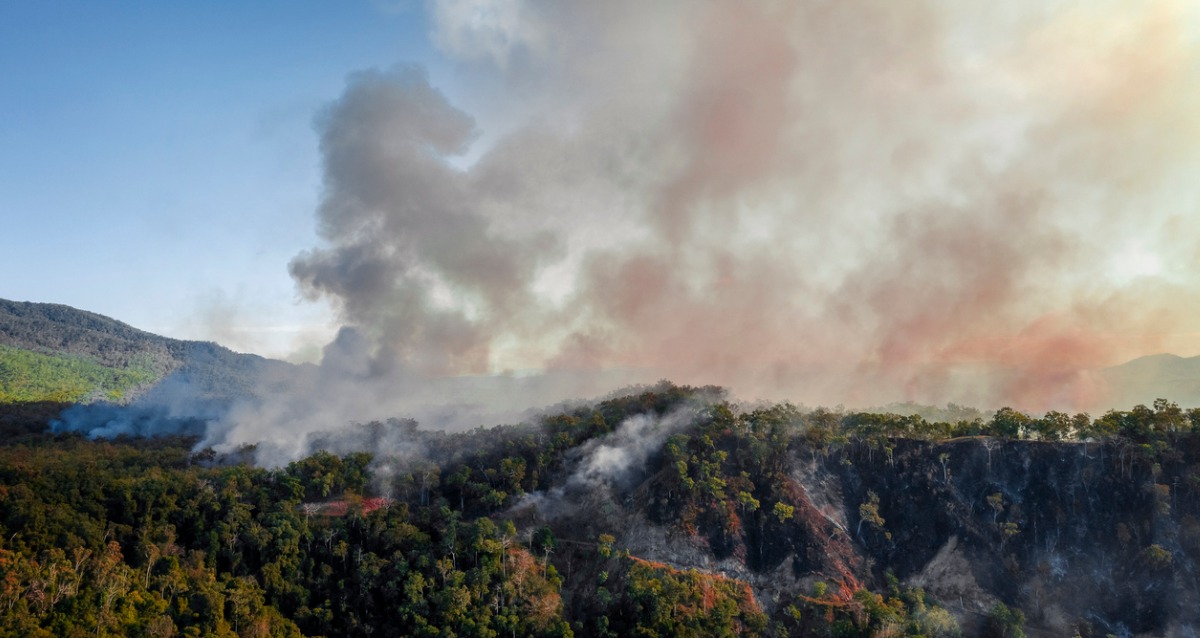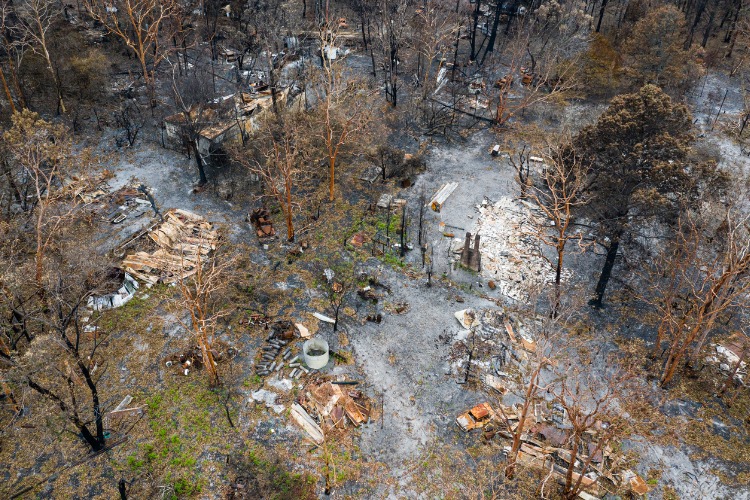What support is available for people with disabilities and seniors in a bushfire crisis? For people who have been affected by the fires, emergency aid, from emergency accommodation, evacuation centres, and support services to financial assistance, is available.
Skip to: Stay Informed | Bushfire Survival Plan | Financial Assistance | Emergency Accommodation | Aids, equipment & AT | Communication resources | Managing chronic conditions | More info
Stay Informed
In an emergency, call Triple Zero (000) or Teletype 106. Please refer to your local fire authority for the most up-to-date and reliable information, listen to your local ABC radio, or stream radio with the ABC Listen App, ABC News on live TV or ABC iview.
New South Wales (NSW)
New South Wales Rural Fire Service (NSW RFS)
You can contact the RFS Bushfire Information Line on 1800 NSW RFS (1800 679 737) or go to www.rfs.nsw.gov.au.
You can also use the Fires Near Me app on your smartphone or tablet device or check the NSW RFS Facebook page or Twitter account @NSWRFS.
Australian Capital Territory (ACT) - Canberra
ACT Emergency Service Agency (ESA)
Phone (02) 6207 8444Go to www.esa.act.gov.auTwitter @ACT_ESAFacebook @ACTEmergencyServicesAgencyVictoria (VIC)
Refer to the Country Fire Authority (CFA) and VicEmergency for information about fires in your area, or call the VicEmergency Hotline.
VicEmergency Hotline 1800 226 226Go to www.emergency.vic.gov.au CFA Headquarters 03 9262 8444Go to www.cfa.vic.gov.au Twitter @CFA_UpdatesFacebook @cfavicSouth Australia (SA)
Refer to the South Australian Country Fire Service (CFS).
Bushfire Information Hotline 1800 362 361TTY 133 677CFS Headquarters 8115 3300Go to www.cfs.sa.gov.auFacebook @countryfireserviceTwitter @cfsalertsQueensland (QLD)
Queensland Rural Fire Service (QRFS)
Call your local Rural Fire Service Area Office directly. Numbers are available at www.ruralfire.qld.gov.au
Queensland Fire and Emergency Service (QFES)
Web: www.qfes.qld.gov.auPhone: 13 QGOV (13 7468)Facebook: QldFireandEmergencyServicesTwitter: @QldFESTasmania (TAS)
Contact the Tasmania Fire Service.
Web: www.fire.tas.gov.auFacebook: TasmaniaFireServiceTwitter: @TasFireServiceNorthern Territory (NT)
Bushfires NT
Phone: 08 8922 0844Web: www.nt.gov.au/bushfiresFacebook: BushfiresNTTwitter: @BushfiresNTWestern Australia (WA)
Emergency WA
Department of Fire and Emergency Services (DFES) WA
Phone: 13 DFES (13 3337)Web: www.dfes.wa.gov.au/bushfireFacebook: dfeswaTwitter: @dfes_waDisaster Response Hotline - Welfare Support
Phone: 1800 032 965 (for those affected by the bushfire that originated in Wooroloo).In 2020, the bushfire crisis impacted communities throughout Australia, with more than 6 million hectares burned. We have collated some useful and critical information on how to stay up to date in a bushfire crisis, especially those whose homes and communities have been directly impacted or are in the line of fire.
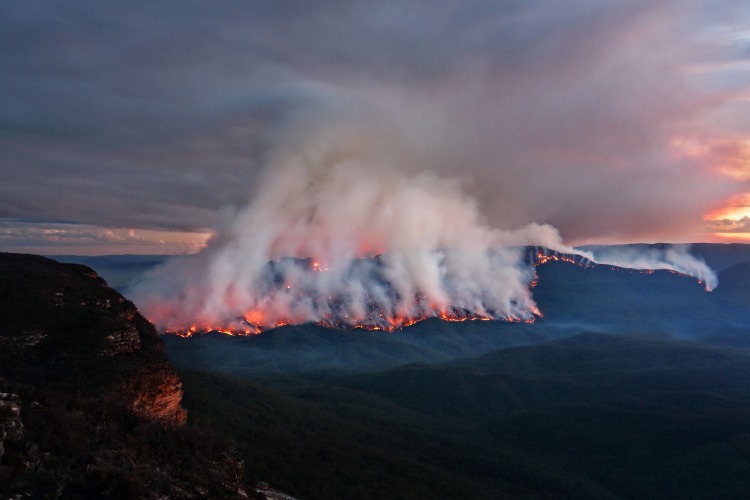
Bushfire Survival Plan
Easy English resources for people with disability, including intellectual disability, can be downloaded from the CFA, Red Cross, and I'm Okay site.
How Fireproof is Your Plan? Read our Blog on Fire Safety if you don’t have one!
Financial Assistance
There is assistance available if you can show you lost income or have been adversely affected as a direct result of the bushfires.
Disaster Recovery Payment and Disaster Recovery Allowance
The Disaster Recovery Payment (DRP) is a one-off, non-means-tested payment of $1000 for eligible adults and $400 for eligible children adversely affected by a major disaster in Australia or overseas.
DRP is activated when the impact of a disaster on individuals and families requires Australian Government assistance in addition to that provided under standard recovery assistance.
Disaster Recovery Allowance is a short-term payment to help you if a declared disaster directly affects your income.
You can get it for a maximum of 13 weeks. It’s payable from the date you lose income as a direct result of the NSW Bushfires in August, September, October, November, December 2019 and January 2020.
Phone 180 22 66Go to www.humanservices.gov.au/individuals/help-emergency/bushfiresDisaster Welfare Assistance Line
For information about disaster relief grants for contents and structural repairs, available to low-income earners with no insurance.
Phone 1800 018 444Red Cross Emergency Grant
People who lost their homes in a bushfire may be eligible for an emergency grant of $2,000. Visit redcross.org.au/grants and register your contact details. Red Cross will follow up after Monday 6 January to verify a few pieces of information, including proof of residence. Once the checks are done, you will be paid by EFT.
Grants are available to people whose primary place of residence has been destroyed or rendered uninhabitable because of a bushfire since 1 July 2019. They are open across Australia.
Read more on Disaster Relief Grants
NDIS to prioritise bushfire-affected participants
Minister for the National Disability Insurance Scheme (NDIS) announced via Twitter.
#Bushfire affected #NDIS participants will be prioritised to ensure they can continue to receive their disability related supports, including any additional supports that may be required such as replacing equipment, additional care or therapies.
— Stuart Robert MP (@stuartrobertmp) January 5, 2020
Information for NDIS National Disability Insurance Scheme participants affected by #bushfires.
Anyone who needs assistance with their NDIS support should call 1800 800 110.
This number will be operational from 8 am-8 pm Monday-Friday this week.
Bushfire-affected #NDIS participants will be prioritised to ensure they can continue to receive their disability-related supports, including any additional supports that may be required, such as replacing equipment, additional care or therapies.
For further advice on NDIS office closures and support, go to www.ndis.gov.au/news/4143-office-closures-nsw-and-vic
Be prepared! Have a "go bag" ready. Read our Packing for an Emergency blog.
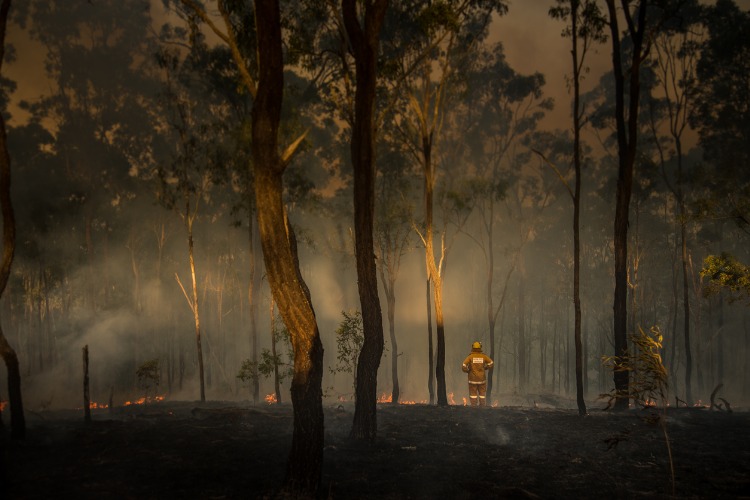
Emergency Accommodation
Accessible Group
Accessible Accommodation has repurposed their already extensive network of accessible accommodation providers to enable people with access needs to find a free temporary emergency accommodation solution. You can access this resource by connecting to the Facebook group.
Facebook group Accessible GroupGo to www.accessibleaccommodation.com.auFind a bed
On New Year's Eve, Erin Riley from Razorback NSW set up Findabed, which is an online database where people can alert people if they have a spare room, holiday home or paddocks.
Go to Findabed.infoAirbnb Open Homes Disaster Relief
Airbnb has a network of hosts who are offering people from bushfire-affected areas free emergency accommodation in their homes.
If you are in NSW, go to www.airbnb.com.au/openhomes/disaster-relief/bushfire-new-south-wales-2020-01If you are in Victoria, go to www.airbnb.com.au/openhomes/disaster-relief/victoriabushfires20Flatmates Disaster Relief
Flatmates.com.au have a temporary emergency accommodation list published on their site. To offer emergency accommodation or to seek it go to www.flatmates.com.au/info/disaster-relief-emergency-accommodation
VicEmergency and Bushfire Recovery Victoria
Premier Daniel Andrews announced today that he is providing $50 million to set up a new agency, Bushfire Recovery Victoria to coordinate all government supports and services in the wake of bushfire activity. In the meantime though, refer to VicEmergency for Relief & Recovery information, including open evacuation centres, financial assistance, road closures and information about health and personal well-being as well as resourced for returning home after a bushfire.
Go to www.emergency.vic.gov.au/reliefBushfire Housing Assistance Service
The NSW Government has established the Bushfire Housing Assistance Service to support people who are temporarily or permanently displaced as a result of the NSW bushfires.
The Disaster Welfare Assistance Line is open every day from 8:30 a.m. to 4:30 p.m. Free call 1800 018 444.
A current list of open evacuation centres can be found on the Department of Justice Office of Emergency Management’s website.
You can also follow on Facebook for more information NSW Disaster Recovery Facebook page
NSW Bushfire clean-up
The NSW Government is coordinating the clean-up of NSW residences and eligible businesses impacted by the NSW bushfires. This includes both insured and uninsured properties. This program focuses on safety hazards and issues that could impede people from rebuilding their homes.
To register or find out more, go to https://dcj.nsw.gov.au/news-and-media/news/2020/bushfire-recovery-support-now-in-one-place.html
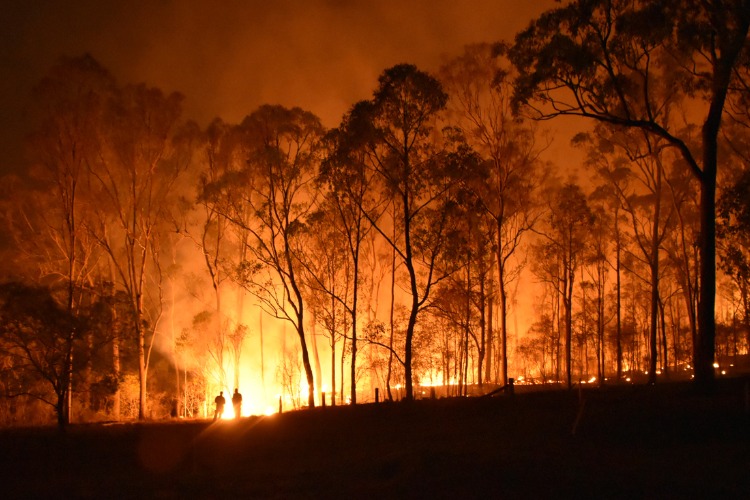
Even if you are not directly impacted by fire, the smoke and heat can have adverse health effects wherever you are. Read more on how to stay well on our Beat the Heat blog.
Aids, equipment and Assistive Technology (AT)
eBility Bushfire Relief Exchange
Disability aids and equipment may be left behind, destroyed or displaced during a bushfire crisis. We have set up a temporary bushfire relief exchange through eBility. To donate or lend aids and equipment or to look for them in your area, you can create a free listing on our new peer-to-peer platform.
Go to ebility-crisis-help.ideas.org.auPermobil Australia
Permobil Australia is asking people who have been affected by bushfires to contact them to see if they can temporarily loan equipment or AT out while other arrangements for permanent replacements are made.
Call 1300 845 483Email This email address is being protected from spambots. You need JavaScript enabled to view it.Communication resources
We’ve pulled together a range of communication resources that may help people understand what has been happening with the bushfires.
Open Source
Created by Professor Bronwyn Hemsley, Annuska Zolyomi and Harmony Turnbull.
This is an open-source, free-to-use folder where people can use templates to create their own social stories. The folder includes examples, photos and a database of topics for modular arrangement. It’s been set up in response to the January 2020 bushfires.
Download Open Source Google SpreadsheetWhich stories would you like to request, for people with #Autism or communication difficulties? problems understanding info? Pics are some new examples, here is the spreadsheet link to add the request https://t.co/5WMIZ3fUov @AnnuskaP thanks so much!! #AustraliaBurns #firecrisis https://t.co/m53D7nQCZ9 pic.twitter.com/fqBjQsb6iN
— Prof Bronwyn Hemsley (@BronwynHemsley) January 8, 2020
Social Story for Children
Early Connections Alliance has developed a Bush Fire Social Story to share with your children. Social Stories are a social learning tool that supports the safe and meaningful exchange of information between parents, professionals, and people with autism of all ages. You can adapt the social story to your family by downloading the Word document.
Go to www.earlyconnections.org.au/social-story-bush-fireEasy Read Bushfire Info
The NSW Council for Intellectual Disability (CID) have developed an Easy Read Bush Fire Info Guide to help people with an intellectual disability or learning difficulties to understand what is going on and what to do before, during and after a bushfire emergency.
Download Bush Fire Info Guide - Dec 2019Social Stories and Tips
Suggestions and social stories to help children adjust to the changes and the stresses related to the fires.
Go to www.autismtas.org.au/autism-and-bushfire-emergenciesManaging Distress
Red Cross have developed accessible guides for managing distress. This guide has information for communities, parents and caregivers after a distressing event. Audio, Easy English and Large Print versions of advice on managing distress. Also available in 7 culturally diverse languages.
Go to www.redcross.org.au/get-help/emergencies/looking-after-yourselfInclusive Disaster Risk Reduction
There is a broader range of materials available in the Resource Library created by the Disability Inclusive Disaster Risk Reduction project. It has information for planning, communication, individuals, community organisations and emergency services.
Go to collaborating4inclusion.org/disability-inclusive-disaster-risk-reductionManaging Chronic Conditions
Arthritis and other Chronic Conditions
Creaky Joints has developed a resource to help people with chronic conditions, including arthritis, MS and other chronic conditions, manage their symptoms during a natural disaster.
Go to creakyjoints.org.au/news-and-features/managing-arthritis-and-other-chronic-conditions-during-natural-disastersAsthma and other Breathing Difficulties
The National Asthma Council have developed a fact sheet on Bushfires and Asthma, which outlines ways to minimise and treat asthma symptoms that can arise in smokey conditions brought about by bushfires.
Mental Health
The Australian Government Department of Health has implemented the Supporting the Mental Health of Australians Affected by Bushfires measure. It aims to ensure people have access to coordinated and tailored support to recover from the effects of the 2019-2020 bushfires. The measure includes the Bushfire Recovery Access Program, providing on the ground counselling and mental health support for individuals, families and emergency responders affected by bushfires and trauma-informed care training for firefighters and other emergency responders who attended the bushfires.
People affected by the bushfires will be eligible to receive ten psychological therapy sessions in addition to the sessions already available by accessing a Mental Health Plan through your local GP.
Go to https://www.health.gov.au/topics/emergency-health-management/what-were-doing/bushfires-and-floodsHeadspace
Dealing with stress from bushfires can be really tough; it’s important to take time to check in and do things to look after yourself. Headspace has developed resources on how to cope with the stress of natural disasters for young people, as well as a group chat space for people coping with bushfires.
Group chat headspace.org.au/eheadspace/group-chat/coping-with-bushfiresResource headspace.org.au/young-people/how-to-cope-with-the-stress-of-natural-disastersRural Resilience Program
The NSW Department of Primary Industries Rural Resilience team works with primary producers across regional and remote NSW to build personal and family resilience. They listen, learn and link farmers and families living in rural and regional communities to empower and equip people with the coping skills they need in times of drought and disaster.
Go to https://www.dpi.nsw.gov.au/emergencies/floods/natural-disaster-assistance-guideHelping Children Impacted by Bushfires
Rosalind Verness, Counsellor and Psychotherapist, has developed a guide for helping children impacted by fires. This guide provides practical and simple advice for parents and carers who are helping their children deal with distress, sadness or fear following the bushfire crisis.
Go to rosalindveness.com.au/helping-children-impacted-by-bushfiresMore information
Our free online database is available 24 hours a day, seven days a week, with over 30,000 fact-checked entries. Search it now, or any time.

